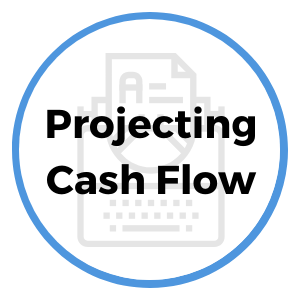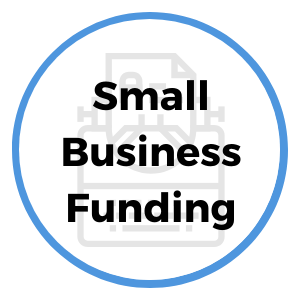- Home
- Business Management Articles
- Employee Retirement Planning
Employee Retirement Planning for a Bright Financial Future
Your employee retirement planning options will vary depending on what you do and who you work for. Regardless of your circumstance, do not delay planning for your future. The sooner you start contributing toward your retirement, the more you'll be able to enjoy those later years.
Business owners frequently put off planning for their own retirement, let alone plan for the long term care of their employees. Particularly small business owners who may mistakenly believe they don't have the resources to support employee retirement planning options.
Employers may want to offer employee retirement plans as an employee benefit but simply aren't aware of how doing so may be possible.
There are many different varieties of financial plans to consider. For example, if you work at a large corporation they probably offer some sort of retirement savings program. Many years ago, it was expected for large companies to provide a Pension for their long time employees. However, over the past several decades, traditional Pension plans are not as common.
Nowadays, 401k programs tend to be more popular. 401k programs allow both the employee and the employer to pay in, which enables the fund to grow faster than it only one entity was paying in. Typically, the company will match the amount the employee is saving up to a pre-determined amount. Whatever the amount is, that's basically free money to the employee, so you definitely want to participate if you are eligible for a 401k program.
As a small business owner or independent worker you may not be 401k eligible, but you still have employee retirement planning options available to you. Some savings products include the standard Savings account, Money Market account, Certificates of Deposit (CD's) or Individual Retirement Accounts (IRA), however, these products, while extremely low risk, do not pay much interest so it's more difficult to grow your funds over time.
“The question isn’t at what age I want to retire, it’s at what income.”
– George Foreman
Other products to consider may include annuities or mutual funds, which are still quite safe and will definitely pay a slightly higher rate of interest. If you are interested in learning more about any of the above products, you can start by talking to your local banker or licensed financial advisor.
(Note: None of the information provided in this article or on our website should be considered professional advice as we are not licensed financial advisors.)
Now that we've covered our legal bases, we also want to tell you about one option you may want to consider that could ensure income for you and your employees in your later years: it's called a SEP Plan.
Employee Retirement Planning: SEP Plan FAQ
What is a SEP Plan?
SEP stands for Simplified Employee Pension. A SEP is a retirement savings plan that small companies can offer to their employees. It is also ideally suited for the self-employed. Employee retirement planning, using SEPs, is a way to combine many of the advantages of more complicated qualified plans but are as simple to understand as IRAs.
As a self-employed person, why should I invest in a SEP over an IRA?
A SEP allows you more of a deduction than an IRA. An IRA deduction is limited to $2,000 per year. (Perhaps more or less as tax laws are constantly changing.) With a SEP, you can contribute up to 15% of your income, not to exceed $24,000.
If your income is $35,000 for a certain year and you contribute $5,000 to a SEP, your federal income tax will be calculated on only $30,000. Assuming a 28% tax bracket, that saves you $1,400 in taxes. You can then invest that money directly into your employee retirement planning account.
How do SEPs appeal to small business owners?
SEPs can be administered with minimal administrative support, since there are no complicated reporting requirements. Each employee sets up his or her own IRA to receive SEP contributions, and each employee is responsible for choosing his or her own investments.
In addition, employers can determine when and what amount to contribute to employee retirement planning accounts. Since the contributions are tax deductible, you pay less in federal taxes.
What is the appeal of SEP's for employees?
These days, it is hard for anyone to save money. SEPs make it possible for employees of small firms to receive employer contributions to their retirement funds and also benefit from tax deferred growth like employees of companies with other tax deferred pension plans.
“Retirement is like a long vacation in Las Vegas. The goal is to enjoy it the fullest, but not so fully that you run out of money.”
- Jonathan Clements
As an employer offering SEP's, must I always contribute?
SEP's offer employer flexibility. You decide when and if to contribute. For instance, if you are having a tough year, you may want to make a smaller contribution than the year before, or not contribute at all. By the same token, if you are having a stellar year, you can reward employees for their accomplishments with a larger contribution.
Do I have to contribute the same amount to all employees?
No. You do not have to offer the exact same dollar amount to each employee. However, you are required to contribute the same percentage of compensation for all eligible employees. Employer contributions may not exceed the lesser of 15% of an individual employee's compensation or $24,000.
What are the employee eligibility guidelines?
Eligible employees include non-union employees who are at least 21 years old, have worked for you at least 3 of the last 5 years, and have earned at least $400 during the past year.
When can you set up a SEP Plan?
As the employer, you have until the due date for your business tax return (plus extensions) to set up a SEP. To establish a SEP, you must sign an adoption agreement. Once the employee retirement planing account is set up, all eligible employees (including yourself) can establish IRAs to receive the SEP contributions.
Who can I call if I want to consider developing a SEP plan for my business?
Your accountant and investment advisor can help you determine if a SEP is the best choice for your business. They will look at your business profitability, your employee base, and how a SEP compares to other pension plan options. (Rules can change at any time, so always consult a professional investment advisor before making any final decisions, as information here may become outdated. We are NOT licensed professional investment advisors.)
The important thing is to start as early as possible. In the first few years of your business, cash flow may not be on your side, but time is. Take advantage of it!
Commit to paying yourself first. Develop an employee retirement planning account that will enable you to live the lifestyle you want when you retire. There is no time like the present to plan for your future, and to help your employees do the same!





